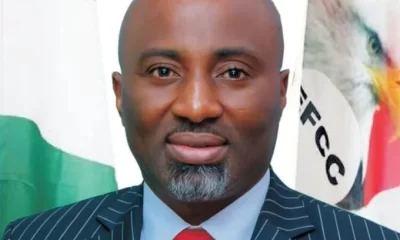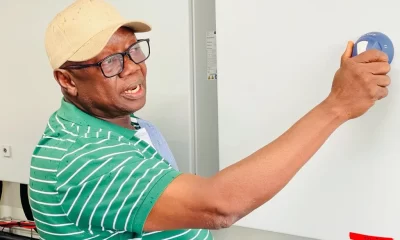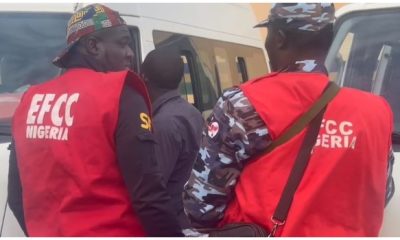Business
How to generate virtual NIN to link with bank accounts
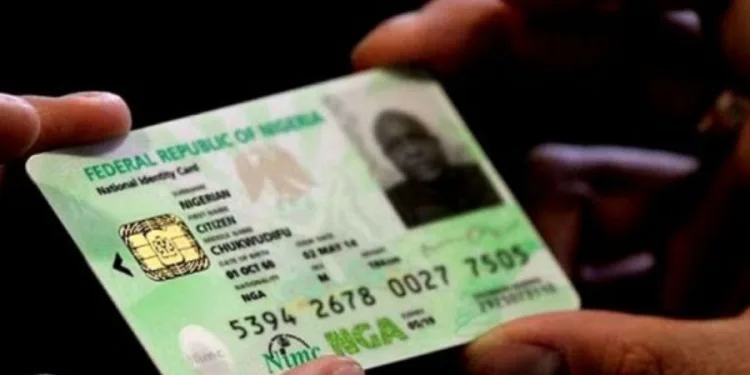
Nigerian banks have been sending messages to their customers to link their National Identification Numbers (NIN) with their bank accounts or risk their accounts being placed on post-no-debit as instructed by the Central Bank of Nigeria (CBN).
While the directive was issued on December 1, 2023, banks did not start the awareness until about a week before the end of February 2024, which created a rush to beat the deadline.
Although bank customers with tier 1 accounts have the option of linking either their Bank Verification Number (BVN) or NIN, customers with tier 2 and tier 3 accounts must link both BVN and NIN, according to the CBN.
One part of the exercise that has got many bank customers confused is the request for virtual NIN by the banks. Until now, many are only familiar with the regular 11-digit NIN issued by the National Identity Management Commission (NIMC).
Virtual NIN is an encrypted, coded representation (“disguised”) version of an individual’s actual NIN, which another party verifying the number cannot retain and use in a way that puts the individual’s data privacy at risk.
- The virtual NIN consists of a set of 16 alphanumeric characters. According to NIMC, this number expires 72 hours after being generated.
- You can use the Virtual NIN when digitally verifying your identity with a verifying agent or enterprise who needs to confirm your identity before offering you a service (banks, airports, shopping delivery, and so on).
How to generate virtual NIN
You can generate your Virtual NIN via USSD or through the NIMC MWS Mobile ID App by following the steps below:
To generate a Virtual NIN via USSD, dial *346*3*Your NIN*AgentCode#
- An SMS message will be sent back to you containing the Virtual NIN generated for you.
To generate a Virtual NIN via the NIMC MWS Mobile ID App, launch the MWS Mobile ID app installed on your device (Android or iOS).
- Make sure you have the current version of the app installed or updated on your mobile device.
- Enter your PIN on the lock screen to continue.
- Select the “GET VIRTUAL NIN” button on the “Home” screen.
The CBN on December 1, 2023 announced that all bank accounts without Bank Verification Number (BVN) and National Identification Number (NIN) will be placed on “Post no Debit” effective April 2024.
The new directive was contained in a circular issued by the central bank and sent to all deposit money banks. The central bank also stated that all the BVN or NIN attached to and associated with all accounts/wallets must be electronically revalidated by 31 January 2024.
- “It is mandatory for all Tier-1 bank accounts and wallets for individuals to have BVN and/or NIN.
- It remains mandatory for Tiers 2 and 3 accounts and wallets for individual accounts to have BVN and NIN,” the apex bank stated.
It added that beginning from 1 March 2024, any such accounts or wallets that are funded will carry the “Post no Debit or Credit” tag and be forbidden from all transactions.
Business
Naira is depreciating because I was out of the country, says Odumeje

Chukwuemeka Ohanaemere, the self-styled Onitsha-based pastor better known as Odumeje, says he will stop the naira from further depreciating against the dollar.
Odumeje spoke at the airport when he returned from London.
The cleric travelled to the UK earlier this month to host a comedy show. He often boasts that he possesses a plethora of spiritual powers, which he releases periodically to fix issues plaguing society.
He had boasted of being behind the naira’s appreciation with one of his powers, when the currency gained 12 percent against the dollar in early April, building on a 14 percent surge in March.
On Friday, the naira depreciated to N1,320 to the dollar at the parallel market.
At the official window, the local currency depreciated by 2.24 percent to N1,339.23 against the dollar on Friday, from N1,309.88 on April 25.
However, Odumeje said he is back to stop the naira’s slide like he has always done.
“This is Indaboski Bahose. The war and the battle. A man full of power and activities. The only man who tells you ‘I will bring down the dollar’ and gets it done. When I left the country, dollar began to rise; now, I am back, I will continue where I stopped,” Odumeje said.
On April 8, the local currency strengthened to N1,120 to the dollar at the black market and N1,230 at the official window.
Odumeje had taken credit for the naira’s appreciation at the time.
Business
Sierra Leone energy minister, Kanja Sesay resigns over electricity crisis
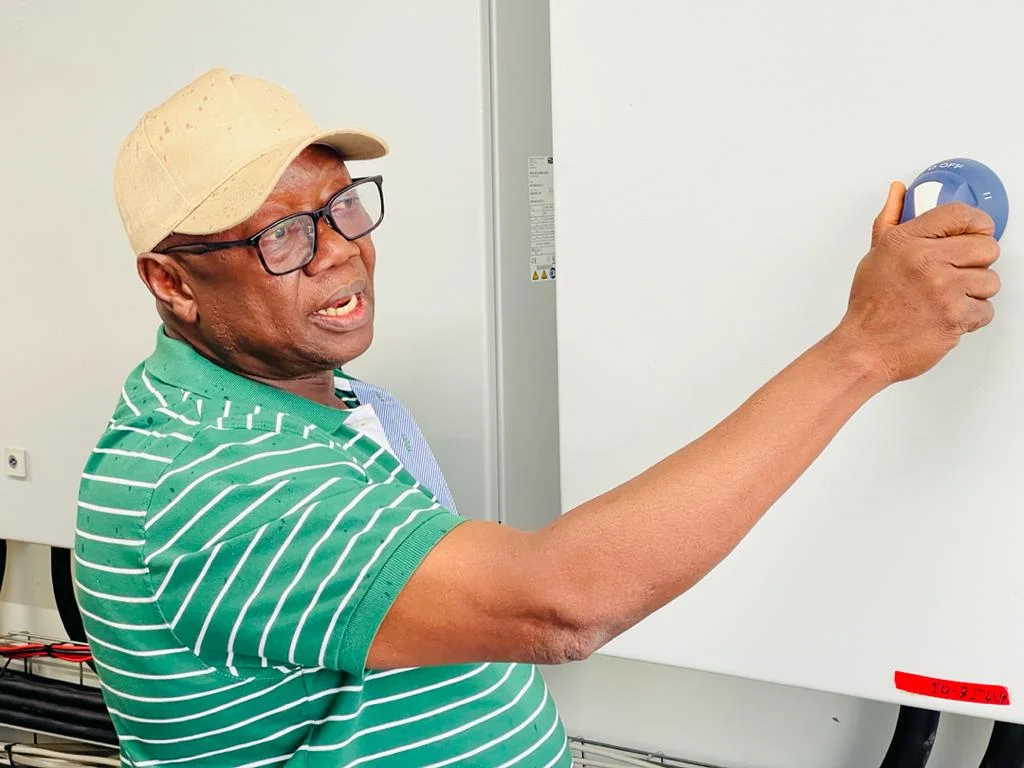
Kanja Sesay, Sierra Leone’s minister of energy, has resigned after weeks of electricity crisis in the West African nation.
According to BBC, in his resignation letter on Friday, Sesay said he took full responsibility for the crisis.
In a statement, the government said the energy ministry has been placed under the direct supervision of President Julius Maada Bio, who will be assisted by two other officials.
Sesay’s resignation came hours after the government paid $18.5 million to two power providers, Turkish Karpowership and Transco-CLSG group.
Sierra Leone owed the two producers $40 million.
After two months of outages, power was restored in Freetown after the payments were announced.
Since mid-April, Freetown and the cities of Bo, Kenema and Koidu have experienced multi-day stretches without electricity.
Karpowership confirmed the payment in a statement.
“We are pleased to confirm that the electricity supply has returned to full capacity in Freetown,” the statement reads.
The company has been supplying electricity to Sierra Leone since 2018 from a floating offshore unit, but it had reduced its capacity from 65 megawatts to just five in recent months due to payment issues.
It had previously cut supplies to Sierra Leone in September over unpaid bills.
In October, it briefly cut power to Guinea-Bissau, saying it had been left with no option “following a protracted period of non-payment”.
Business
Naira depreciates in parallel market, official window

The naira depreciated to N1,320 per dollar at the parallel section of the foreign exchange (FX) market on Friday.
The current FX rate signifies a decline of 1.54 percent from N1,300/$ traded on April 24.
Currency traders, known as bureau de change (BDC) operators, quoted the buying rate at N1,260 and the selling price at N1,320 — leaving a profit margin of N60.
At the official window, the local currency depreciated by 2.24 percent to N1,339.23 against the dollar on Friday, from N1,309.88 on April 25.
According to FMDQ Exchange, a platform that oversees the Nigerian Autonomous Foreign Exchange Market (NAFEM), also known as the official window, during trading hours, a dollar was sold as high as N1,410 and at a low rate of N1,051.
Meanwhile, on April 24, Emeka Obegolu, president, Abuja Chamber of Commerce and Industry (ACCI), asked the federal government to develop policies that will strengthen the naira and foster economic growth in Nigeria.
“We are here to brainstorm innovative strategies for strengthening the naira, assessing progress, identifying challenges, and formulating practical solutions,” Obegolu said.
He pledged that the recommendations from the roundtable will be diligently conveyed to the relevant authorities for implementation.
-

 News5 days ago
News5 days agoFAAN reopens Lagos airport runway after Dana Air incident
-

 Entertainment1 week ago
Entertainment1 week agoSkiibii’s ex-lover DJ Dorcas Fapson reacts after Nickie DaBarbie accused singer of engaging in money rituals
-

 Business1 week ago
Business1 week agoElon Musk threatens to suspend X accounts doing engagement farming
-

 Celebrities1 week ago
Celebrities1 week agoNickie Dabarbie calls out Skiibii for attempting to use her for money rituals (Video)
-

 World1 week ago
World1 week agoIsrael launches counterattack on Iran
-

 Politics1 week ago
Politics1 week ago‘You’re not following procedure’ — Drama as Ondo guber hopeful confronts Ododo over APC primary
-
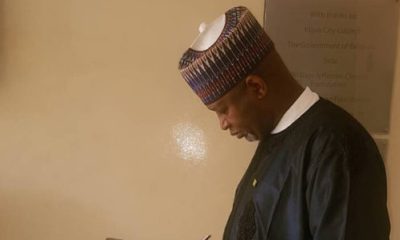
 News4 days ago
News4 days agoNigeria Air: EFCC vows to arraign Sirika over alleged contract fraud
-

 Education5 days ago
Education5 days agoUNN suspends, probes lecturer attempting to sexually assault female student

